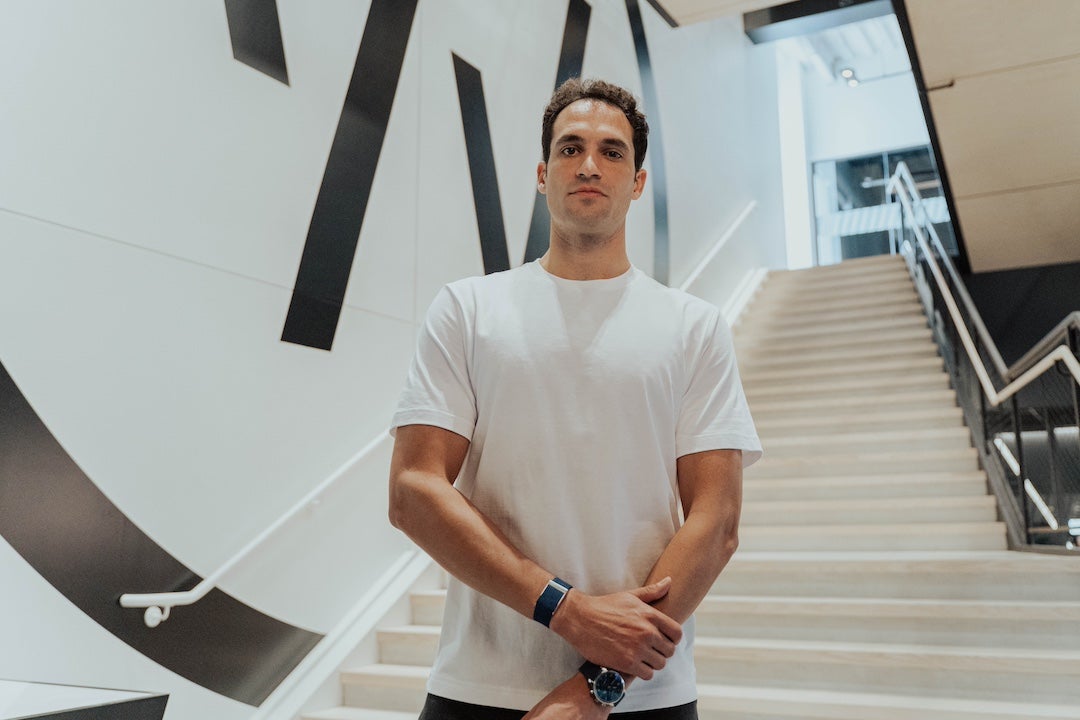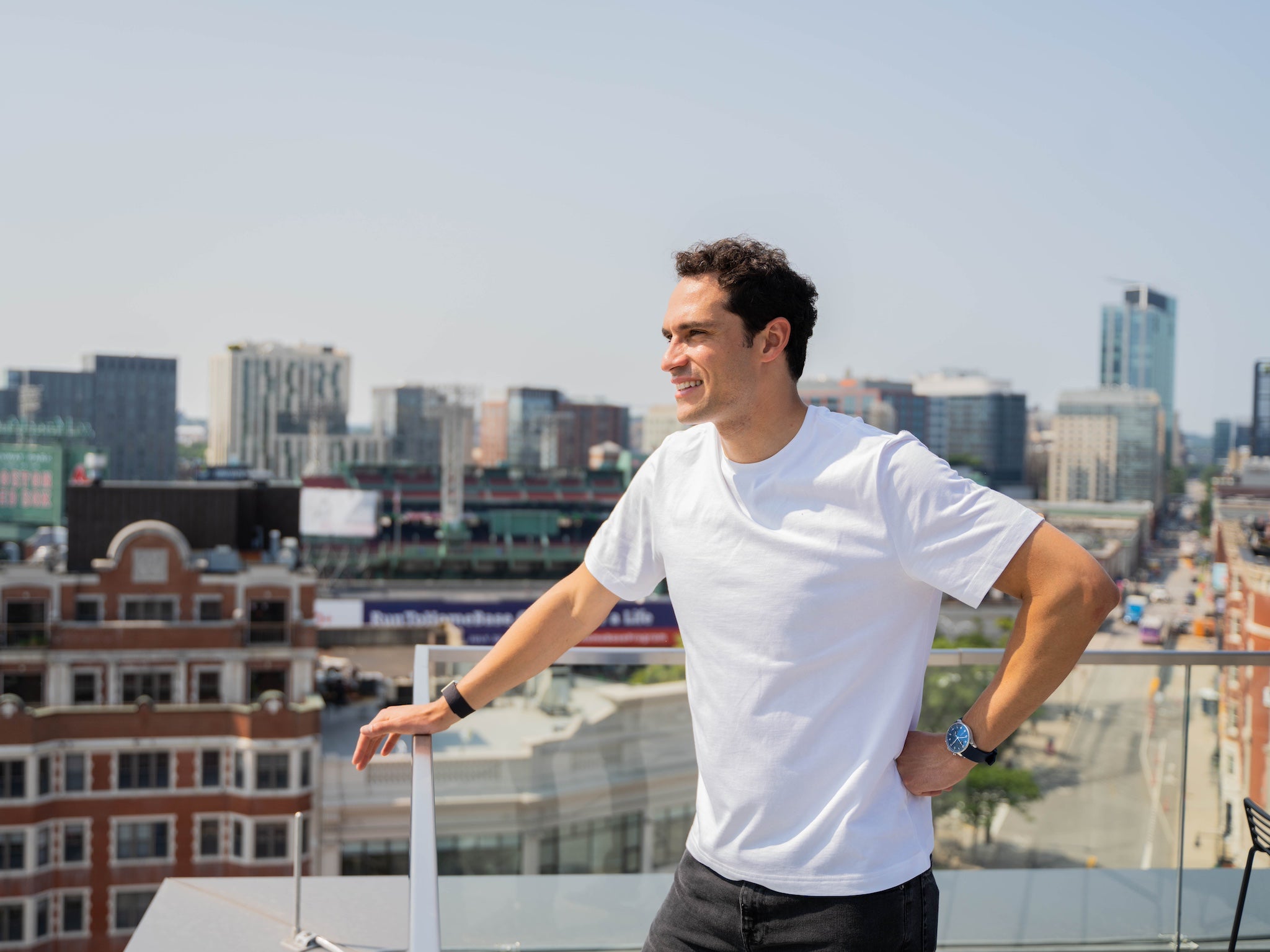‘You can only really manage what you measure’: Whoop’s Will Ahmed on optimising your health
A Way to Wellness: Whoop’s CEO on how tech has influenced his own wellness routine

Your support helps us to tell the story
From reproductive rights to climate change to Big Tech, The Independent is on the ground when the story is developing. Whether it's investigating the financials of Elon Musk's pro-Trump PAC or producing our latest documentary, 'The A Word', which shines a light on the American women fighting for reproductive rights, we know how important it is to parse out the facts from the messaging.
At such a critical moment in US history, we need reporters on the ground. Your donation allows us to keep sending journalists to speak to both sides of the story.
The Independent is trusted by Americans across the entire political spectrum. And unlike many other quality news outlets, we choose not to lock Americans out of our reporting and analysis with paywalls. We believe quality journalism should be available to everyone, paid for by those who can afford it.
Your support makes all the difference.“I don’t think of it as working hard and wellbeing as being on different sides of the equation. I think that you can learn how to take on a lot of stress or work extremely hard, but also feel good and be healthy, and that’s really, I think, the ultimate goal.”
So says Whoop’s founder and CEO Will Ahmed. But the experience of having it all where our wellbeing and workload is concerned is still elusive for many of us.
I often find that I have to prioritise work or my social life over a lie-in or an extra hour at the gym. However, I will admit that building a solid wellbeing routine has helped somewhat with those trade-offs and in part, I have my fitness tracker to thank for that. The Whoop has served me well, teaching me to prioritise rest when I need it and giving me vast insights into my health that have nudged me to make small but effective changes.
When I tell Ahmed this, he doesn’t seem at all surprised. He knows the tracker is an impressive piece of kit. Whoop, after all, is a $3.4bn company with a product beloved by the world’s leading athletes. In the beginning, Ahmed’s strategy for building the business focused purely on equipping professional sportspeople with wearable technology but today, a Whoop subscription is available globally to anyone interested in digging deeper into their personal biometric scores.
“But,” he tells me, “Whoop is a tool, it’s a coach. You’re not always in a mode to follow a coach and I think that’s okay. You have to learn how to build a relationship with it and learn how to use it. Whoop’s certainly not going to do all the work for you. I think at the end of the day, it takes the individual to make the changes that they need to. But for a lot of people, they don’t know what to do, and so to have that information at your fingertips is an amazing moment that we live in right now.”
Whoop has certainly given many people the power to take their health into their own hands. In the Whoop app, I joined huge online communities comprising people with varying levels of health and fitness. Not everyone was a professional sportsperson or a competitive gym goer. In fact, most of the people I saw interacting in the app were pretty normal. Their goals were weight loss, better sleep or reduced stress.
Strain is a buzzword in the Whoop community. The band measures it by analysing your heart rate variability, energy expenditure, and sleep duration and quality. So I wondered, how someone who’s presumably worked tirelessly to build a successful company that hinges on wellbeing minimises their own strain and stress levels. Ahmed seems to have found a balance, but surely there’s some tension between being an entrepreneur and one of the leading poster boys for optimised health.
“It’s certainly something I’ve honed a little bit with Whoop,” says Ahmed. “Whoop as a technology is very focused on routine and measuring the body, and so these are things that, with time, I’ve found have helped me manage stress and take on the workload of being an entrepreneur and a CEO. I think if you learn some of these habits there’s no contradiction.
When I was 23 or 24 running the company, and it was a much smaller scale, I felt like I was extremely stressed and I couldn’t manage it. So I do think it’s something that any entrepreneur or anyone personally can develop – a set of tools or habits for you to be better at managing stress.”
Ahmed certainly ticks all the boxes with his current routine. It’s replete with all the habits of a person who’s thought deeply about their stress levels and ways to minimise them. For someone who lives and breathes health and wellness, his daily rituals are unsurprising – cold plunges, meditation and trips to the gym – but the key here, he tells me, is consistency.

“In a lot of ways, my day starts the night before,” he says. “I like optimising my sleep routine so I wear blue light glasses that block blue light or allow you to watch TV or look at your phone without having light that stimulates you to stay awake. I try to have a wind-down period in the evening. I try to go to bed and wake up at the same time because sleep consistency is shown to naturally improve your physiology and the quality of your sleep. I sleep in a dark, cold, quiet room, and so all those things improve my sleep.
Then I wake up in the morning. I’ll take a cold shower, throw on some workout clothes, go work out for an hour. I’ll do a sauna afterwards, then a cold plunge. I’ll eat breakfast, I’ll meditate, head into the office, do a bunch of meetings, probably back to back. And then a fairly light lunch, more meetings, more work. And then in the evening, dinner with my wife, and then the wind-down period.”
My own experiences with the Whoop and other trackers have shown me that maintaining a streak with exercise, hours of sleep, and a regular bedtime and wake-up time will improve how capable I feel, both mentally and physically, the next day. Nailing down that routine can make a ton of difference to how well you feel and how much you’re able to take on. Sure, some people can do this without a wearable but speaking personally, it can sometimes be hard to see the wood for the trees when your life is hectic and ever-changing from one day to the next.
Ahmed explains that “you can only really manage what you measure, and it’s helpful to establish certain baselines in your life to then improve upon. How much sleep do you get? Are you someone who recovers well? Are you stressed all the time and run down? How often do you exercise? You know, these are very measurable things, and when you create a baseline for them, you start to realise certain things you can tweak and change about your routine, maybe about your set of priorities, that allows you to improve them.
The vision was always to start with the world’s best athletes, but over time, have it grow to a much larger audience. Much more common today are people who want to understand sleep and people who want to be able to manage stress. You know, a woman who’s pregnant for the first time, someone who’s trying to recover from injury or sickness, these are all sorts of different chapters in someone’s life.”
Read more: Best fitness trackers that will get you moving, from Fitbit to Garmin
It’s clear that tracking your health has its benefits. Being able to access personalised data in a single tap is a huge innovation and something Ahmed is clearly passionate about. While some are critical of the act of measuring every heartbeat and change in body temperature, Ahmed maintains that doing so has the potential to dramatically improve our quality of life.
“Only 3 per cent of all physiological research is done on women, so 97 per cent is done on men,” he explains. “That’s unbelievable. And so we’ve pledged to commit 50 per cent of our resources to women’s research and 50 per cent to men’s research, because first of all, it’s the right thing to do, and second of all, that represents the population. From a research standpoint, we are able to conduct studies among our Whoop members. We’ve collected a very large data set on pregnant women, and we’re now demonstrating innovations that no one’s discovered before. For example, we were able to show that heart rate variability is an important predictor of when a woman’s actually going to deliver and what an amazing innovation that is.”
Ahmed tells me that his mission is ultimately unlocking human performance and improving health. “Unlocking human performance is a long-term strategy. Improving health, that’s a long-term strategy. And so we like behaviour change that is sticky. We like health improvement that drives health outcomes.” he says.
“There are secrets that your body is trying to tell you that you can’t feel but you can measure. Whoop measures that information about your body, and it gives you digestible scores that allow you to figure out what’s right for you. It’s not for everyone. But if you are motivated in your life and you have any goals, I believe you can get there by improving your overall lifestyle.”
Read more: I tested the Whoop 4.0 and the results surprised me




Join our commenting forum
Join thought-provoking conversations, follow other Independent readers and see their replies
Comments